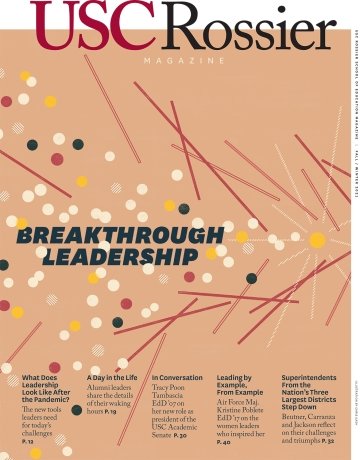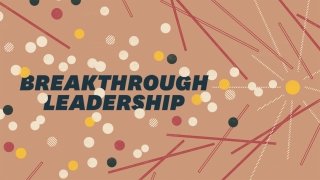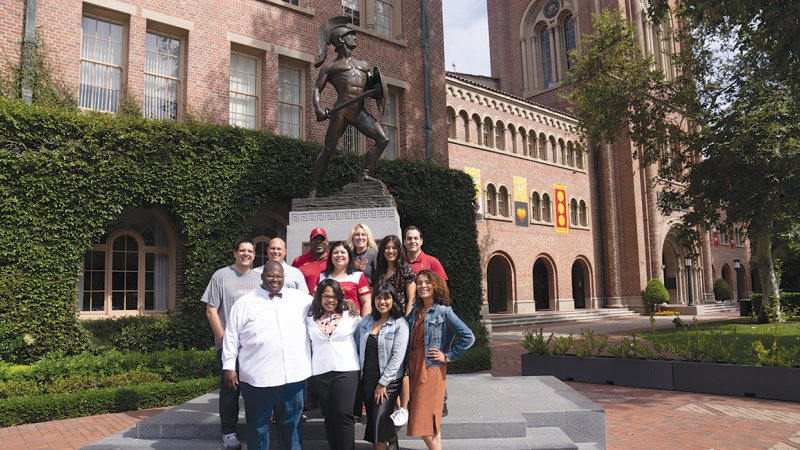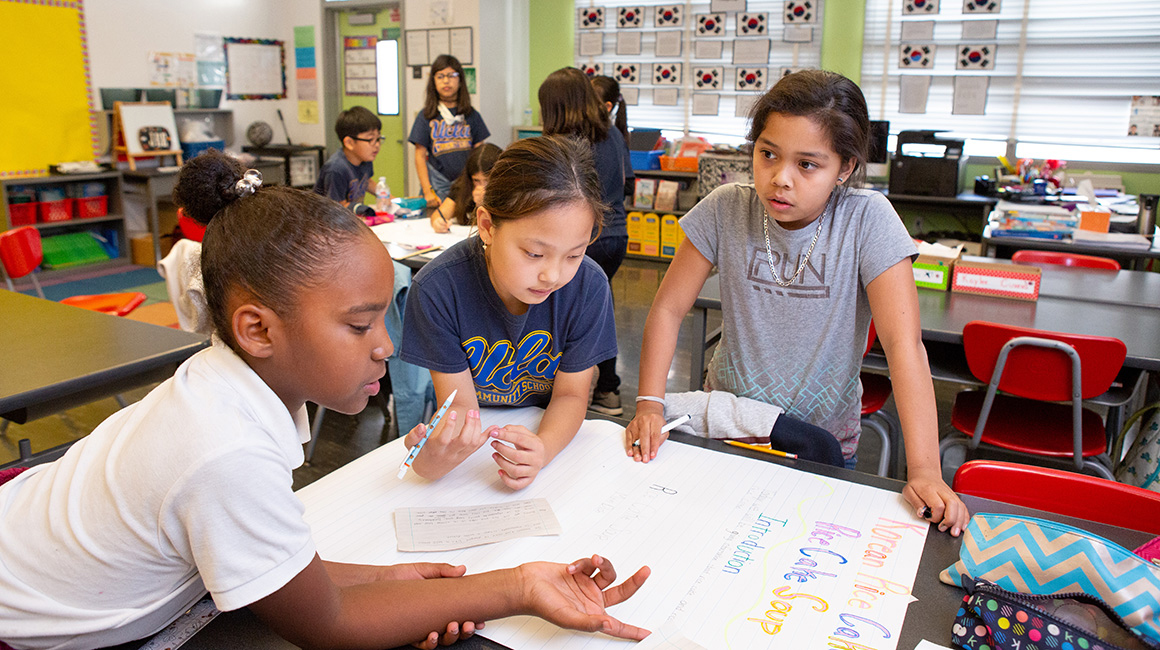
USC Rossier Magazine: Fall/Winter 2021
Breakthrough Leadership

What does it mean to be a good leader?
Styles of leadership and what makes an effective leader change with the culture and context of the moment. These days, the idea of leaders being at the center of all things is changing, too, as we are beginning to see leaders not as the ones with all the answers, but the ones who are asking the right questions. In this issue of USC Rossier Magazine, we explore what effective leadership looks like today. What are the questions leaders should be asking as we seek to rebuild and revitalize our education systems to adequately respond to post-pandemic realities? What skills do leaders need to successfully serve their communities? Just as our society and the institutions that hold us together evolve, so too do the techniques, skills and strategies needed from today’s leaders.

How can education leaders break through the challenges of today?
Meeting the demands of the post-pandemic era will require new skills and preparations.
Features

What does leadership look like after the pandemic?
Kindness, creativity and relationship building are among the essential skills education leaders need to break through the challenges of today.

A day in the life of a USC Rossier grad
Alumni leaders share the details of their waking hours—from their morning routines to the ways they wind down from their busy working days.

The pandemic changed their jobs overnight. How did education technology leaders manage?
USC Rossier alumni share how they led their districts out of crisis and into a brighter, more plugged-in future.

After a harrowing year, superintendents from the nation’s three largest urban districts step down
Austin Beutner, Richard Carranza and Janice Jackson look back on leading schools during the pandemic.

The Avengers student group aims ‘to create revolutionary change in education’
These student superheroes are using their special powers to shape the future of education.
Alumni and Student Profiles

How can educators create the conditions for student leadership?
Professor Julie Slayton explains that giving students meaningful opportunities to lead in the classroom extends beyond distributing materials and grants them decision-making power.

‘Having a place at the table is not enough’
Tracy Poon Tambascia EdD ’07, newly elected president of the USC Academic Senate and USC Rossier professor of clinical education, on the importance of leaders amplifying alternative perspectives.

Leading with questions rather than answers
Professor Adrian Donato EdD ’16 discusses why leaders must frame goals around the ‘why.’

Paying it forward
The Andrew Nikou Foundation backs a crowdsourcing model that seeks solutions to education problems.



